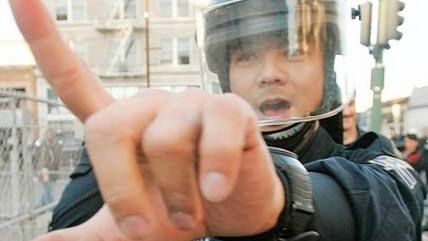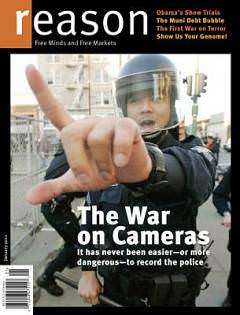Federal Judge Orders Police Not to Interfere with Recording in Ferguson


The police's poor handling of media and the public recording their behavior in Ferguson, Missouri, became as much part of the news as its militarized response when faced with protesters upset with Michael Brown's shooting. Journalists were detained. Folks were ordered to stop recording police. They instituted a no-fly zone over Ferguson to keep out media helicopters.
As we close in the announcement by a grand jury (any moment now) to tell us whether Officer Darren Wilson will face charges for killing Brown, the Missouri chapter of the American Civil Liberties Union (ACLU) has gone to federal judges to get court orders securing a reminder that citizens have the right to film the police. From the St. Louis Post-Dispatch:
The orders signed by U.S. District Judge John A. Ross are in response to a motion filed by the ACLU last week. The organization complained authorities were still inhibiting filming of protest-related events, despite earlier court agreements with St. Louis County, Ferguson and Highway Patrol Superintendent Ronald Replogle.
Friday's court orders say the highway patrol and county police are "permanently enjoined from enforcing a policy or custom of interfering with individuals who are photographing or recording at public places but who are not threatening the safety of others or physically interfering with the ability of law enforcement to perform their duties."
Unfortunately, police have a lengthy history of flat out ignoring such orders in the field. In this very case, they've been ignoring other agreements to stop this censorious behavior, according to the ACLU. But we know from coverage of this behavior across the country that police are quick to invoke those exceptions listed above and claim that filming them is threatening the safety of others or interfering in law enforcement duties, even when it's clearly not the case. Reason TV covered such an incident in Los Angeles in 2013. Watch below. Do not be surprised if journalists and non-journalists alike still run into problems trying to record police behavior in Ferguson. Do not be surprised if there are no real consequences for police who violate the order.


Show Comments (54)